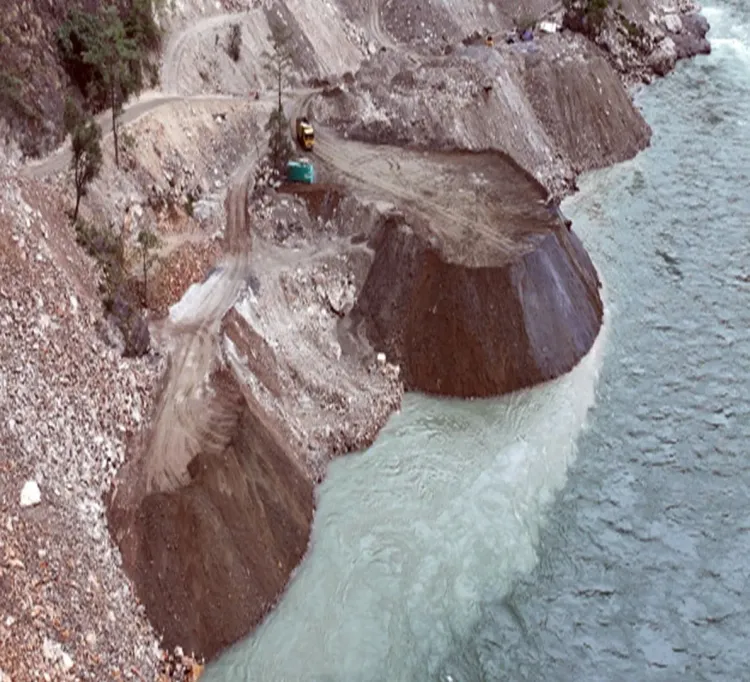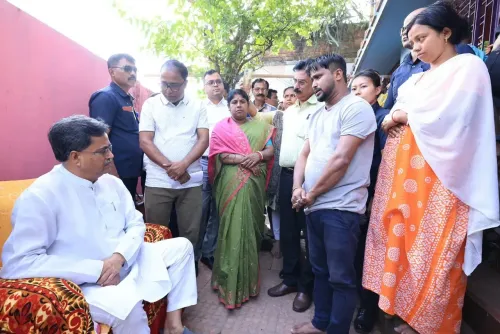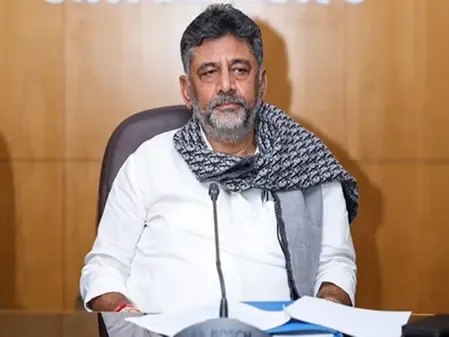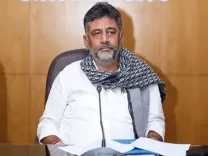What is the Centre's Review of Major Infrastructure Projects in Jharkhand and Northeast States?

Synopsis
Key Takeaways
- Centre's review of infrastructure projects aims to resolve key issues.
- Focus on Jharkhand and Northeast states for economic growth.
- Projects like Patratu Thermal Power Station and Dibang Hydropower Project are crucial.
- Enhanced inter-ministerial coordination is essential for project success.
- State governments encouraged to support private sector initiatives.
New Delhi, June 26 (NationPress) The Centre has conducted a thorough review of critical factors impacting major infrastructure projects in Jharkhand, Sikkim, Nagaland, Assam, and Arunachal Pradesh during a high-level meeting held here, as stated in an official announcement released on Thursday.
Chaired by the Secretary of the Department for Promotion of Industry and Internal Trade (DPIIT), Amardeep Singh Bhatia, this meeting brought together senior officials from Central ministries, state administrations, and project developers. The focus was on accelerating the resolution of issues through improved coordination between ministries and states, facilitated by the Project Monitoring Group (PMG).
A total of 18 challenges across 11 major projects in Jharkhand were reviewed, with the cumulative cost of these projects exceeding Rs 34,213 crore. Additionally, two issues related to two projects in Sikkim, amounting to Rs 943.04 crore, were also discussed, alongside three issues concerning two projects in Nagaland, with a total cost of Rs 544.65 crore.
In Assam, one project with an investment of Rs 6,700 crore was reviewed, while seven issues across three projects, including one private initiative, with a total investment of Rs 33,469 crore in Arunachal Pradesh, were also part of the high-level review.
The Patratu Thermal Power Station Expansion Project Phase I, located in Jharkhand, was examined in detail. This initiative is being executed by the Ministry of Power through the National Thermal Power Corporation (NTPC) and Patratu Vidyut Utpadan Nigam Limited (PUVNL).
The aim of this project is to achieve a total capacity of 4,000 MW in phases, with Phase I consisting of three units of 800 MW each, summing up to 2,400 MW. This brownfield expansion is being constructed at the existing site of the Patratu Thermal Power Station. The project utilizes supercritical technology, which enhances efficiency and minimizes emissions. Water for the facility will be sourced from the nearby Nalkari Dam, while coal supply has been secured via NTPC’s captive coal blocks, as clarified in the statement.
The 2,880 MW Dibang Hydropower Project in Arunachal Pradesh, being developed by NHPC under the Ministry of Power, will feature India's tallest dam and is expected to generate 11,223 million units of clean energy each year. Set for commissioning by February 2032, this project will assist in flood management, provide 13 percent free power to the state, and contribute to Net Zero objectives, according to the statement.
The Kohima Bypass Road in Nagaland, developed by NHIDCL under the Ministry of Road Transport and Highways, aims to alleviate congestion in Kohima city while enhancing intra- and inter-state connectivity and fostering trade, tourism, and regional integration. These projects are vital for socio-economic growth and bolstering infrastructure resilience in the Northeast’s challenging landscape.
Additionally, an issue relating to a private sector project by GeoEnpro Petroleum Limited in Arunachal Pradesh, valued at Rs 1,000 crore, was also part of the discussions during the meeting.
The Secretary of DPIIT urged the state government to prioritize this matter and provide all necessary assistance to GeoEnpro Petroleum Limited to ensure timely resolution of project-related challenges. The state government was also encouraged to adopt proactive strategies aimed at enhancing the Ease of Doing Business (EoDB), thereby boosting private sector confidence and creating a favorable investment environment both within the state and across the nation.
The Secretary of DPIIT reiterated the commitment to improving the institutional framework for project monitoring and instructed the relevant authorities to take a proactive stance in addressing outstanding issues, as stated in the announcement.









